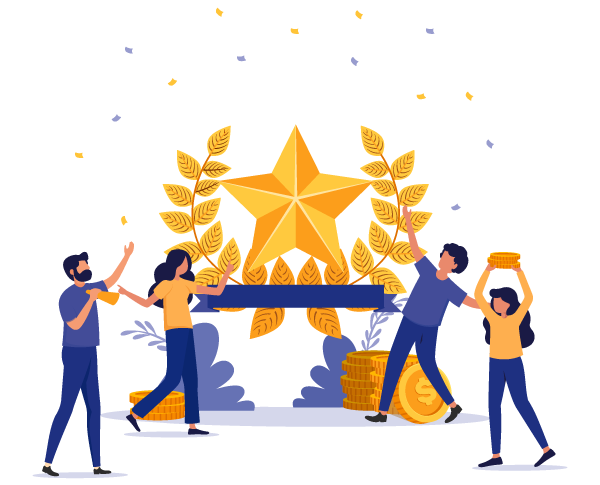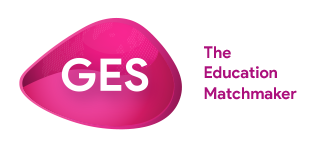
- Overview
- Why VU
- Alumni & Faculty Achievement
- Awards & Accreditations
- Programmes
- Key Ranking
- Life in Melbourne
- Latest Updates
Overview
- Victoria University (VU), in Melbourne, Australia, offers internationally recognised, world-class qualifications built on more than 100 years of teaching history
- VU has campuses in the heart of Melbourne city, and in Melbourne's cosmopolitan western suburbs
- Melbourne City: City Flinders Campus, City Flinders Lane Campus, City King Campus, City Queen Campus
- Footscray: Footscray Park Campus, Footscray Nicholson Campus
- Outer Western Suburbs: Sunshine Campus, Werribee Campus, St Alban Campus
- Our facilities including contemporary learning spaces, simulation labs, robotics, high-performance testing, industry-supported facilities such as the CISCO cybersecurity centre and the SAP Next Gen Lab, and the latest technology for vocational skills development
- Our alumni network of more than 240,000 includes 30,000 professionals living and working around the world, while employers of our alumni include the London Ambulance Service, Indonesia’s Ministry of Finance, Walt Disney World, Facebook and NASA
- Many VU courses include a compulsory placement or industry project. These practical learning opportunities apply to a range of subject areas including business, engineering, health and education
- VU offers safe, modern, friendly and fully furnished on-campus student accommodation
Why VU
When you study with us, you benefit from:
- Work placements with our industry partners
- The VU Block Model – with smaller classes, focused learning and better results
- Employability programs that prepare you for work after graduation
- Our courses are designed together with industry, to ensure that you learn the skills employers are looking for – now, and in the future
- We have over 4000 links with industry across our teaching and research, making us one of the most industry-connected universities in Australia
- We are one of only six universities in Australia to offer TAFE and university courses. This means that we can help you to move easily between courses at all levels, progressing from TAFE, to undergraduate (bachelor degrees) and then postgraduate degrees
- We offer students a wide range of support services – from scholarships, health and wellbeing services.
Exclusive Teaching Method – BLOCK MODEL:
- VU, the first university in Australia to introduce the Block Model, building on the proven successes of block programs at universities in Sweden, Canada and the US
- In 2019, first-year pass rates were at 87% (up 13% on standard model) while for second year students, pass rates were at 90%
- Over 40% of students received distinctions and high distinctions, without a change to the assessments given
- Each unit typically has three, three-hour, face-to-face teaching sessions per week, scheduled over three days
- If you are having difficulty with a concept or a task, the teacher is there to provide 1:1 support
- Block class sizes are small
- Students can focus on a single unit at a time
Alumni & Faculty Achievement
Notable Alumni:
- John Stanway - CEO Royal Melbourne Children’s Hospital
- Vedran Drakulic OAM - CEO Gandel Philanthropy
- Sameerah Arif - Blood Cancer Support Coordinator, Leukemia Foundation
- Januario Mok - Deputy Director East Timor Development Agency
Awards & Accreditations
- The success of VU’s Block Model has been recognised by the International Education Association of Australia 2018 Excellence Award for Innovation, the Victorian International Education 2018 Award for Excellence in International Education, and the Desire 2 Learn 2019 D2L Excellence Award
- In the Times Higher Education (THE) World University Rankings 2021 (and previously in 2017–20), VU was ranked in the top 2% of universities worldwide
- VU ranked 11th out of 22 Australian institutions in the 2020 Times Higher Education Young University Rankings. Within this ranking we are #2 of the ranked Victorian universities.
- VU ranked 54th in 2018 and 55th in 2017 for the Times Higher Education Asia Pacific University Rankings, moving up to 51st in 2019
- Based on the United Nations Sustainable Development Goals, VU is ranked:
- 12th in the world for Quality Education (SDG 4) out of more than 670 global institutions (SDG 16) out of more than 450 global institutions
- 101-200 for Good Health and Well-being (SDG 3) out of 620 globally ranked institutions
- 101-200 for Partnership for the Goals(external link) (SDG 17) out of 806 globally ranked institutions with a score of 71.4
- #551-560 in 2021 in the QS World University Rankings
- #16 Best Public Engineering School under $25,000 with fully ABET Accredited Programs ( US News & World Report)
- International students rank our English language centre number 2 in Australia and number 5 in the world, according to the i-graduate English Language Barometer 2018

Programmes
VU ENGLISH (ELICOS)
- GENERAL ENGLISH (GE)
Intakes: January, February, March, May, June, July, August, October, November - ENGLISH FOR ACADEMIC PURPOSES (EAP)
Intakes: January, February, March, May, June, July, August, October, November (depending on the level of study) - ENGLISH FOR ACADEMIC PURPOSES - IELTS PREPARATION
Intakes: January, June, December
INTERNATIONAL FOUNDATIONS
- FOUNDATION (STANDARD)
Intakes: July, October - FOUNDATION (EXTENDED)
Intakes: February, July
HIGHER EDUCATION DIPLOMAS
Intakes: February, July
- Diploma of Business (Enterprise)
- Diploma of Engineering
- Diploma of Information Technology
VU POLYTECHNIC

Intakes: February, August
- Bachelor of Arts
- Bachelor of Music
- Bachelor of Screen Media
- Master of Digital Media
BUSINESS
Intakes: February, August
- Bachelor of Business
MAJORS:
Accounting | Human Resource Management | Marketing | Banking and Finance | Information Systems Management | Supply Chain & Logistics Management | Event Management | International Trade | Tourism And Hospitality Management | Financial Risk Management | Management And Innovation - Master of Business (Accounting)
- Master of Business Administration (Global)
- Master of Business (Management)
- Master of Change, Innovation and Leadership
- Master of Business (Enterprise Resource Planning Systems)
- Master of Business (Enterprise Resource Planning Systems)/ Master of Supply Chain Management
- Master of Business (Enterprise Resource Planning Systems)/Master of Business Analytics
- Master of Business Analytics (Professional)
- Master of Business (Marketing)
- Master Of Business (Industrial Relations And Human Resource Management)
- Master Of Business (Supply Chain Management)
EDUCATION
Intakes: February, August
Intakes: August
- Bachelor of Early Childhood Education
- Diploma of Education Studies & Bachelor of Education Studies
- Graduate Diploma in Early Childhood Education
- Master of Education
- Master Of Teaching (Primary Education)
- Master Of Teaching (Secondary Education)
Intakes: August
- Bachelor of Education(P-12)
ENGINEERING AND SCIENCE
Intakes: February, August
- Bachelor of Building Design
- Bachelor of Building Surveying
- Bachelor of Construction Management (Honours)
- Bachelor of Engineering (Honours) (Architectural Engineering)
- Bachelor of Engineering (Honours) (Civil Engineering)
- Bachelor of Engineering (Honours) (Electrical And Electronic Engineering)
- Bachelor of Engineering (Honours) (Mechanical Engineering)
- Master of Engineering
- Master of Project Management
HEALTH, PSYCHOLOGY AND DERMAL SCIENCES
Intakes: January, June
Intakes: February
Intakes: February, August
- Diploma of Nursing
Intakes: February
- Diploma of Beauty Therapy
- Bachelor of Dermal Sciences
- Bachelor of Biomedical Science
- Bachelor of Human Nutrition
- Bachelor of Health Science
- Bachelor of Paramedicine
- Bachelor of Science (Osteopathy)
- Master of Health Science (Osteopathy)
- Bachelor of Biomedical and Exercise Science
- Master of Counselling
Intakes: February, August
- Bachelor of Nursing
- Bachelor of Psychological Studies
- Bachelor of Psychology (Honours)
- Master of Public Health (Global Nutrition and Active Living)
INFORMATION TECHNOLOGY AND SYSTEMS
Intakes: February, August
- Bachelor of Information Technology
- Master of Applied Information Technology
LAW & CRIMINOLOGY
Intakes: February, August
- Bachelor of Laws
- Bachelor of Laws (Graduate Entry)
- Bachelor of Criminology/ Bachelor of Psychological Studies
- Bachelor of Criminology
- Bachelor of Laws/Bachelor of Criminology
- Bachelor of Criminal Justice
- Bachelor of Criminal Justice and Psychological Studies
- Graduate Diploma in Migration Law
SOCIAL, COMMUNITY AND YOUTH DEVELOPMENT
Intakes: February, August
Intakes: February
- Bachelor of Youth Work
- Bachelor of Community Development
- Master of International Community Development
Intakes: February
- Bachelor of Social Work
SPORT AND EXERCISE SCIENCE
Intakes: February
Intakes: February, August
- Diploma of Sport
Intakes: February, August
- Bachelor of Sport Management
- Bachelor of Exercise Science (Clinical Practice)
- Bachelor of Exercise Science (Sport Practice)
- Bachelor of Outdoor Leadership
- Bachelor of Sport Science
- Bachelor of Sport Management/Bachelor of Business
- Bachelor of Physical Education and Sport Science
- Master of Clinical Exercise Science and Rehabilitation
Key Rankings
#12
in the world for Sport Science
#37
in the world in Hospitality and Tourism Management
#32
in the world for Automation and Control
#56
in the world's top 200 universities under 50 years oldTimes Higher Education Young University Rankings
- #551-560 in 2021 in the QS World University Rankings
- Scored five stars for full-time employment rates in Health Services and Support
- Computer Science discipline ranks 7th in Australia and 2nd in Victoria
- 50% Research involves international collaborations

Life in Melbourne
- Voted one of the most student-friendly cities in the world (QS Best Student Cities)
- #2 World’s most liveable city on seven occasions (Economic Intelligence Unit)
- The city of melbourne has it all: galleries, parks, shopping and nightlife
- Vibrant Chinatown in the east of the city along Little Bourke Street, bustles with Chinese shops and restaurants
- International students can register for the iUSEpass - a special discount public transport pass only for eligible international students
- The minimum 12-month living costs set by the Australian Government:
- Student or guardian: A$ 21,041
- Groceries and eating out: $140 to $280 per week
- Gas, electricity: $10 to $20 per week
- Phone and Internet: $15 to $30 per week
- Car (after purchase): $150 to $260 per week
- Entertainment: $80 to $150 per week





Latest Updates
- The VU Future Leaders Scholarship (International) supports new international students who plan to commence their higher education diploma, undergraduate or postgraduate (coursework) studies in 2021
- How to apply: Students will be required to confirm that they wish to be considered for the scholarship at the time they submit their application for admission into an eligible VU qualification. Scholarship eligibility can only be assessed after the applicant has met the course entry requirements
- Value (2021 commencement): 20% off the first two semesters’ tuition fee. Upon successful completion of two semesters, students will be assessed for an extension of the scholarship based on academic performance. This is valued at 10% off the tuition fee per semester for the remainder of their studies
- Eligibility (2021 commencement): All new students commencing a higher education diploma, undergraduate or postgraduate (coursework) course with VU Melbourne are eligible, including students commencing their studies by digitally-supported (DSR) learning from outside of Australia (please refer to terms and conditions below). VET courses are not eligible for this scholarship
